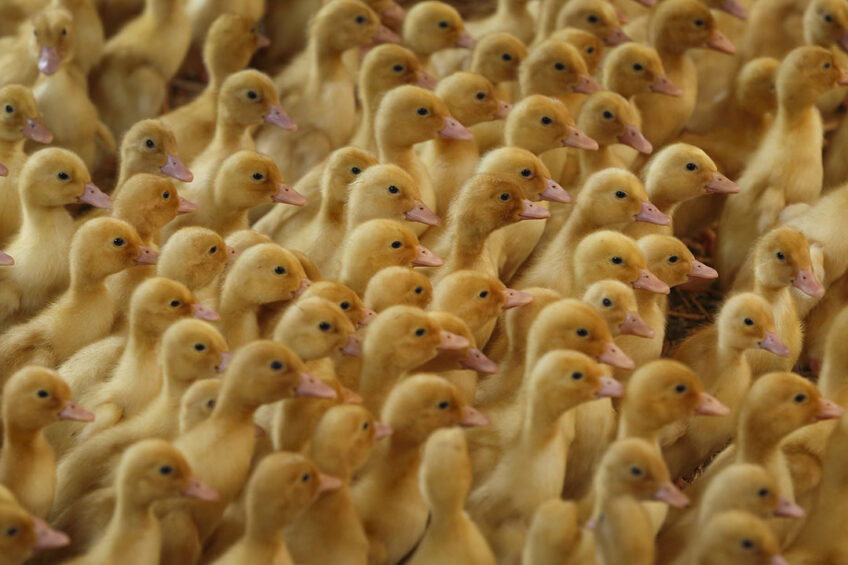France ups avian influenza support ahead of vaccination campaign

The financing of 5 measures has been announced in France aimed to complete the compensation system from which breeders can benefit under the 2022-2023 epizootic crisis and to ensure the launch of a bird flu vaccination campaign for ducks.
France’s Ministry of Agriculture and Food Sovereignty has noted that while vaccination alone will not prevent a new epizootic, it does constitute an additional prevention tool, in addition to the measures already implemented (biosecurity, health surveillance, a reduction in stocking densities, etc.). France’s Minister of Agriculture and Food Sovereignty, Marc Fesneau, has therefore announced the 5 measures.
Preparing for the vaccination campaign targeting ducks
Vaccination against avian influenza will be compulsory for all commercial duck farms throughout mainland France (excluding Corsica) throughout the year. Vaccination will remain voluntary for breeding duck farms whose production (day-old birds or hatching eggs) is intended exclusively for national trade. Vaccination of breeding ducks whose products are intended for export is prohibited in order not to block certain export trade flows.
Each vaccinated farm must be subject to precise health monitoring through regular analyses and a monthly visit by the health veterinarian. France’s Ministry of Agriculture and Food Sovereignty will assume responsibility for 85% of the total cost of this project.
Reduce duck densities
To better prepare for the vaccination campaign, and in light of the resurgence of the avian influenza epidemic in France in May, a de-densification strategy targeting waterfowl is being implemented in Pays-de-la-Loire and Deux-Sèvres. Gradually reducing the density of ducks in the farms until the implementation of vaccination would limit the risk of a new epizootic wave.
This strategy is carried out in 2 steps – first the gradual end (from July) of the introduction of unvaccinated ducks in 45 municipalities of Pays-de-la-Loire and Deux-Sèvres, and then the introduction of only vaccinated ducks from October 2023. This measure also applies to about 40 strategic sites for avian genetics.
Compensation for breeders
An advance system aims to relieve the cashflow problem that breeders are experiencing in regulated areas affected by the 2022-2023 crisis. This advance, up to a maximum of 50% of the estimated losses, will be paid over the course of the summer without waiting for the window to close, set for 15 September 2023 at the latest.
Compensation for selection-incubation link
To support companies in the selection-incubation link and breeders of breeding stock also affected by this epizootic, France’s Ministry of Agriculture and Food Sovereignty reaffirms, subject to validation by the European Commission, will deploy a compensation scheme in autumn 2023, which will cover 100% of the losses in gross operating surplus (EBITDA) suffered during the months affected by avian influenza when this loss is greater than 20%.
Revaluation of health compensation scales
The scale of compensation for slaughtered poultry for the 2022-2023 crisis is revalued based on the production costs of the quarter having concentrated the most slaughtering, i.e., the 4th quarter of 2022.












